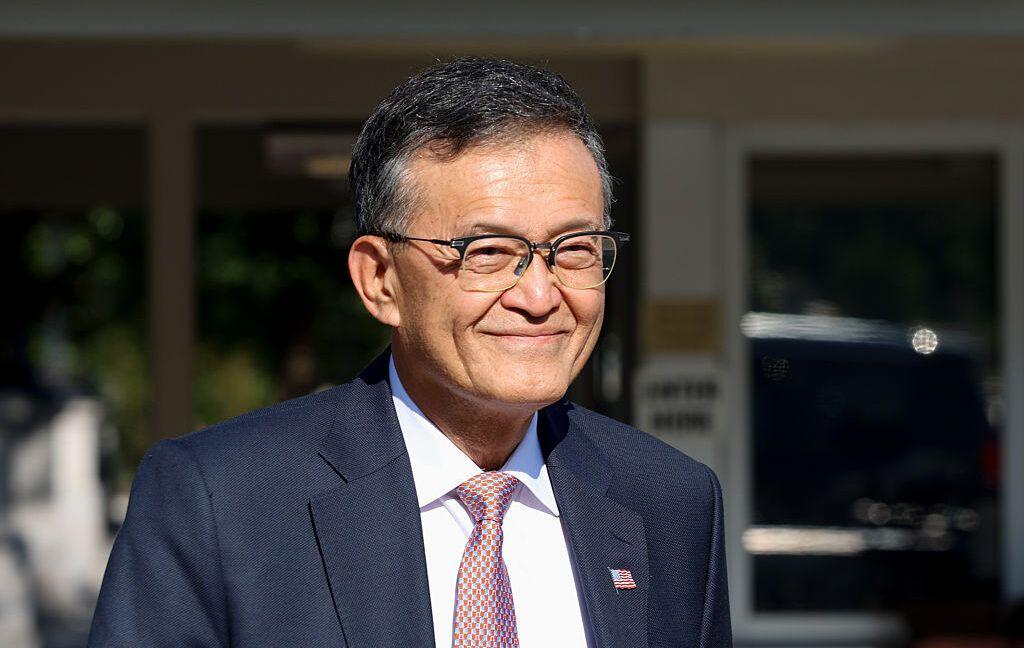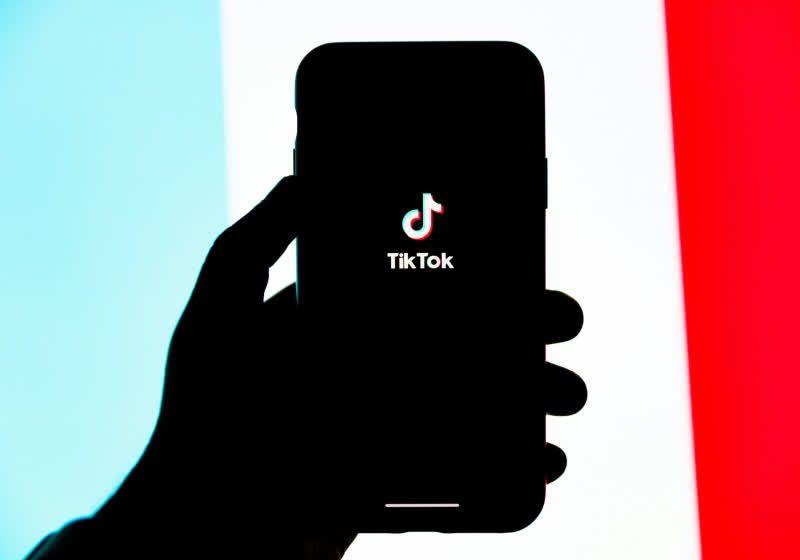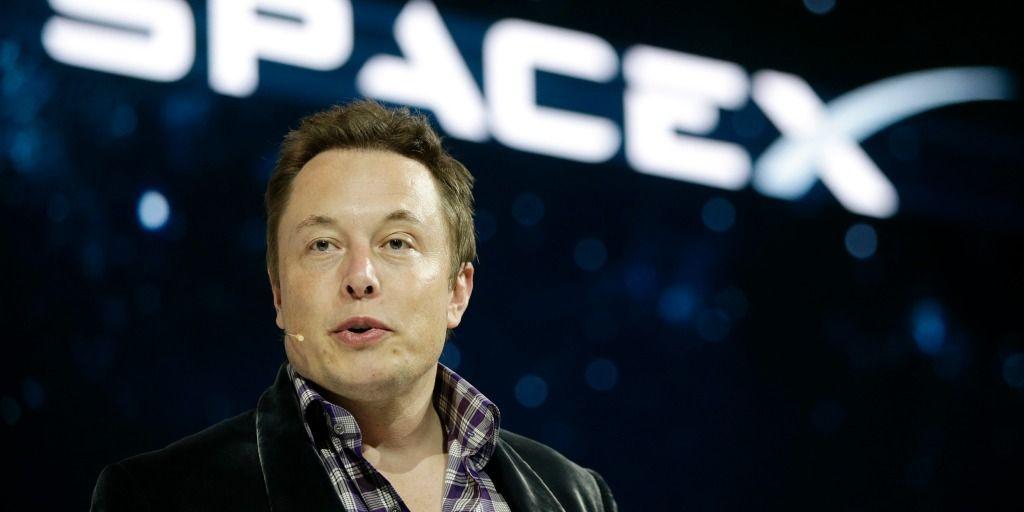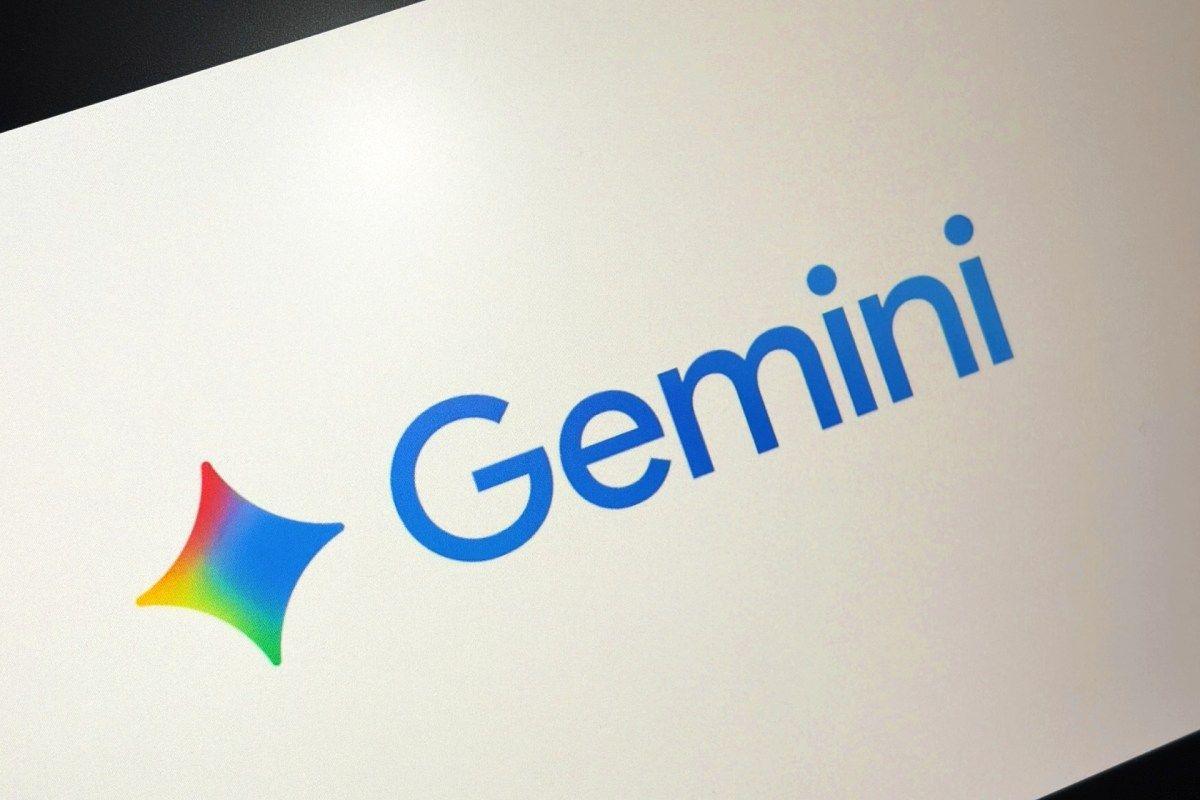US-China Trade Tensions: AI and Chip Exports at the Center of Potential TikTok-for-Tariffs Deal
2 Sources
2 Sources
[1]
US-China showdown: "Trump card" played? Tiktok-for-tariffs deal or cold war 2.0?
US-China showdown has reached a critical point, with tensions escalating over trade policies and technology disputes. The focus now is on a potential TikTok-for-tariffs deal, where the future of TikTok in the US might be tied to trade negotiations. Many wonder if this will lead to a historic trade deal or if we're heading towards a new cold war.President Donald Trump is back in the spotlight, and so is the U.S.-China trade conflict. His latest move? A potential "TikTok-for-Tariffs" deal, which could shape global trade, technology, and artificial intelligence (AI) policies for years to come. While Trump's first trade deal with China in 2020 was largely ineffective, his second-term agenda could be far more consequential. The key question remains: Will Trump negotiate a historic U.S.-China trade deal, or will he lead the U.S. into an intense Cold War-like tech battle? The immediate focus is on TikTok. Trump has proposed allowing the app to continue operating in the U.S. if its parent company, ByteDance, cedes control of its U.S. operations. But the bigger issue is the growing divide between the U.S. and China in artificial intelligence and semiconductor technology. Trump's stance on AI restrictions will have a direct impact on major companies like Nvidia (NVDA), Meta (META), Microsoft (MSFT), and Taiwan Semiconductor (TSM). The Biden administration had imposed strict export controls to prevent China from accessing advanced AI chips. Whether Trump will continue these restrictions or negotiate a trade-off remains uncertain. Also Read: Stock Market Today: Dow Jones remains steady, Nasdaq and S&P 500 fall; Alphabet, AMD disappoint; Gold, Bitcoin rise amid earnings and trade tensions The tech industry is feeling the effects of these actions. Nvidia, a leading chipmaker, experienced a 3.7% drop in its stock value, while Tesla saw a 6% decline. According to KraneShares, Trump may take a softer approach to China than expected. During his campaign, he threatened a 60% tariff on Chinese imports but later scaled it down to 10%. However, DeepSeek, a Chinese AI company, has demonstrated a cost-effective way to compete with U.S. AI giants like OpenAI and Anthropic. This development has raised alarms about China closing the AI gap. In response, Trump's administration is reportedly considering extending chip export restrictions first introduced by Biden. April 5, 2025 - Trump's deadline to finalize a deal on TikTok's future in the U.S. May 15, 2025 - Biden's AI chip export restrictions are set to take full effect. According to SemiAnalysis founder Dylan Patel, these restrictions could be "the largest salvo in the new technology cold war." DeepSeek's AI chatbot, developed using Nvidia's H20 chips, has disrupted expectations. It can match OpenAI's ChatGPT at a fraction of the cost. This innovation suggests that restricting China's AI chip access may not be enough to curb its progress. Instead, it might push China to find alternative solutions faster. Trump's decision on whether to ease or maintain Biden's AI restrictions will shape the future of AI competition between the U.S. and China. If he relaxes restrictions, companies like Nvidia and Oracle (ORCL) may benefit. But if he enforces them, China may accelerate its domestic AI development. Biden's AI chip export rules categorize countries into three tiers: Tier 1 (Unrestricted Access): U.S., Canada, UK, Japan, and key allies. Tier 2 (Restricted Access): India, Brazil, Saudi Arabia, and others. Tier 3 (Banned): China, Russia, North Korea, and others. These restrictions aim to prevent China from acquiring high-end chips like Nvidia's H800 and upcoming Blackwell models. However, reports suggest that ByteDance, TikTok's parent company, has been securing Nvidia chips through data centers in Southeast Asia. Also Read : Ukraine War: Zelensky opens door for talks with Putin, calls on U.S. and Europe to join the effort During his first term, Trump imposed tariffs on over $360 billion worth of Chinese goods. While these tariffs reduced U.S. imports from China from $538.5 billion in 2018 to $426.9 billion in 2023, they didn't force China into significant policy changes. Instead, China invested heavily in its semiconductor industry, reportedly spending six times more than the U.S. on chip manufacturing equipment. Taiwan is central to the AI chip war. Taiwan Semiconductor Manufacturing Company (TSMC) produces the world's most advanced AI chips, including those used by Nvidia and Apple. The U.S. has invested $100 billion under the CHIPS Act to boost domestic semiconductor production, but full independence from Taiwan's supply chain is still years away. Meanwhile, tensions in the Taiwan Strait have escalated, with increased Chinese military activity. The U.S. faces a growing dilemma: how to protect Taiwan while avoiding direct military conflict with China. Trump's approach to China will shape the global economy and AI industry. If he pursues a "grand bargain," the U.S. and China could strike a new trade agreement that benefits both sides. However, if Trump escalates the AI and semiconductor battle, the U.S. could see: More aggressive Chinese military maneuvers near Taiwan. Retaliatory trade restrictions from China, targeting key U.S. industries. A push for China's self-sufficiency in AI and semiconductors, potentially accelerating its rise. The TikTok decision may be the first indicator of which path Trump will take. Will he prioritize economic gains, or will he double down on national security concerns? The answer will define the future of U.S.-China relations. Will a TikTok-for-tariffs deal happen? There's potential for a deal, but it's unclear if it will resolve the broader trade tensions. Is this the start of Cold War 2.0? It's a possibility, with increasing trade and tech conflicts between the US and China.
[2]
Amid tariffs war, AI and chip exports could drive US-China ties
The announcement of a sovereign wealth fund by the US can prove key to TikTok's sale. Donald Trump has indicated that the fund could possibly buy the app.US President Donald Trump's tariffs against China may be a precursor to a trade deal between the two countries. The Trump administration's position on artificial intelligence and semiconductor export controls will be key to any negotiations with China. The US President has professed that he hopes he can reach a trade deal with China and they can work together on issues, according to CNN. Trump has also paused the ban on social media app TikTok, which is owned by Chinese firm ByteDance. Trump had assumed a hawkish position on China during his first term as well. The position was later echoed by his successor Joe Biden, who put export restrictions in place for materials used for manufacturing semiconductors and advanced chips, including three kinds of software tools. The regulations put restrictions on 140 companies including Chinese firms Naura Technology Group, SiCarrier and Piotech. Also Read : Ozzy Osbourne and Black Sabbath to reunite for a final spectacle at Villa Park The US could push for buying TikTok. The government had earlier called for ByteDance to divest its US business to allow the app to function. While Trump has temporarily paused the ban on the social media app, he has also floated the idea that Microsoft was in talks to buy the video sharing platform. The announcement of a sovereign wealth fund by the US can prove key to TikTok's sale. Trump has indicated that the fund could possibly buy the app, the BBC reported. The rise of DeepSeek has sparked concern among investors on whether the United States will be able to hold an edge in AI. According to Investor's Daily Business, some experts feel that restrictions on advanced chips could motivate China to research more efficient methods of training and modelling AI software. According to the outlet, chip export controls will be central to any trade deal negotiations between the US and China. Trump's 10 percent tariffs on China, while leading to a similar response by Beijing, have not matched up with his election rhetoric to impose 60 percent tariffs on Chinese products. This casts doubt over the amount of tough negotiations the US could pursue. Trump's position on AI and chips controls will be key to any trade deal with China. On its part, China had earlier indicated that it wanted to avoid a trade dispute like Trump's first presidency. Export controls on chips, domestic economic pressures and a pause on tariffs could bring it to the negotiating table, but any deal would not be easy to reach. Also Read: British Airways resets Loyalty Scheme following controversy: changes explained 1. What has Donald Trump said about the sovereign wealth fund? Donald Trump said that the fund would be "one of the biggest" globally. 2. What is the deadline for ByteDance divesting its US business? The last date is April 5.
Share
Share
Copy Link
As US-China relations reach a critical point, a potential TikTok-for-tariffs deal emerges, with AI and semiconductor technology at the forefront of negotiations. The outcome could shape global trade and technology policies for years to come.

US-China Trade Tensions Escalate
The US-China relationship has reached a critical juncture, with trade policies and technology disputes taking center stage. President Donald Trump's potential "TikTok-for-Tariffs" deal has brought renewed attention to the ongoing trade conflict, which could significantly impact global trade, technology, and artificial intelligence (AI) policies
1
.The TikTok Dilemma
Trump has proposed allowing TikTok to continue operating in the US if ByteDance, its parent company, cedes control of its US operations. This decision, with a deadline of April 5, 2025, could be a pivotal moment in US-China relations
1
. The US government has also floated the idea of a sovereign wealth fund potentially buying TikTok, adding another layer of complexity to the negotiations2
.AI and Semiconductor Technology at the Forefront
The broader issue underlying the TikTok controversy is the growing divide between the US and China in AI and semiconductor technology. The Biden administration had imposed strict export controls to prevent China from accessing advanced AI chips, a policy that Trump must now decide whether to continue or modify
1
.Impact on Tech Industry
These geopolitical tensions have already affected the tech industry. Nvidia, a leading chipmaker, saw a 3.7% drop in its stock value, while Tesla experienced a 6% decline. The future of companies like Nvidia, Meta, Microsoft, and Taiwan Semiconductor hinges on the outcome of these negotiations
1
.China's AI Advancements
DeepSeek, a Chinese AI company, has demonstrated a cost-effective way to compete with US AI giants like OpenAI and Anthropic. This development has raised concerns about China closing the AI gap, prompting considerations to extend chip export restrictions
1
.Related Stories
Biden's AI Chip Export Rules
The current administration has categorized countries into three tiers for AI chip access:
- Tier 1 (Unrestricted Access): US, Canada, UK, Japan, and key allies
- Tier 2 (Restricted Access): India, Brazil, Saudi Arabia, and others
- Tier 3 (Banned): China, Russia, North Korea, and others
These restrictions aim to prevent China from acquiring high-end chips like Nvidia's H800 and upcoming Blackwell models
1
.Taiwan's Critical Role
Taiwan plays a central role in the AI chip war, with Taiwan Semiconductor Manufacturing Company (TSMC) producing the world's most advanced AI chips. The US has invested $100 billion under the CHIPS Act to boost domestic semiconductor production, but full independence from Taiwan's supply chain remains years away
1
.Potential Outcomes
Trump's approach to China will shape the global economy and AI industry. If he pursues a "grand bargain," the US and China could strike a new trade agreement benefiting both sides. However, escalating the AI and semiconductor battle could lead to more aggressive Chinese military maneuvers near Taiwan, retaliatory trade restrictions, and a push for China's self-sufficiency in AI and semiconductors
1
.As negotiations unfold, the tech industry and global markets watch closely. The outcome of these talks will not only determine the future of TikTok in the US but also set the tone for US-China relations and the global AI landscape for years to come.
References
Summarized by
Navi
Related Stories
Trump's Controversial AI Chip Deal with Nvidia and AMD Reshapes US-China Tech Relations
16 Aug 2025•Technology

US-China Tensions Escalate Over Huawei's AI Chips Amid Shifting Tech Policies
22 May 2025•Policy and Regulation

Trump Approves $14 Billion TikTok Deal, Reshaping US Ownership Amid Security Concerns
26 Sept 2025•Policy and Regulation

Recent Highlights
1
French Police Raid X Office as Grok Investigation Expands to Include Holocaust Denial Claims
Policy and Regulation

2
OpenAI launches Codex MacOS app with GPT-5.3 model to challenge Claude Code dominance
Technology

3
Anthropic releases Claude Opus 4.6 as AI model advances rattle software stocks and cybersecurity
Technology





